| Micropollutants Conference 2023 Speakers |
Professor John FawellJohn Fawell has worked in the field of water quality for over 40 years, first at the UK Water Research Centre, eventually as Chief Scientist of the National Centre for Environmental Toxicology, and later as an independent consultant. He has been involved in research on and risk assessment of a wide range of contaminants, both organic and inorganic. He has been a member of the team working on the WHO Guidelines for drinking water quality since 1986 and is an author on many WHO advisory and supporting documents. He remains a member of the WHO expert committee on the Guidelines and works closely with WHO regional offices, particularly European Office through which he was one of the main authors of the advisory document for the European Commission on the revision of the European drinking water directive. He has been closely involved in assessing contaminants impacting aquatic organisms and also on wastewater re-use. Professor Fawell is a visiting professor at Cranfield University Institute for Water Science and has provided advice to governments in many parts of the world. 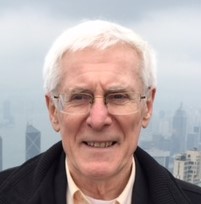
Professor John Fawell Ann Bunting | Principal InspectorAnn is a Principal Inspector at the Drinking Water Inspectorate with responsibility for communications, stakeholder engagement, and policy. Ann has led a project on EU Exit, ensuring that domestic regulations continued to work effectively post Brexit, and has developed the governance structures for an advisory board on drinking water standards, for England. Prior to that, Ann was a water quality scientist at Northumbrian Water. She also has experience of working at the Environment Agency, STEM education, and the voluntary sector. 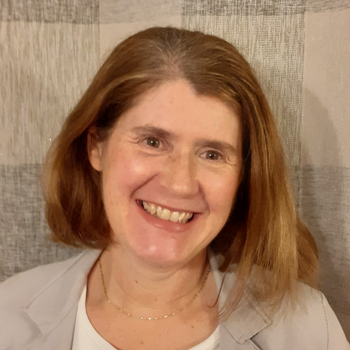
Ann BuntingPrincipal Inspector Phillipe Sauvignet | Industrialisation ManagerPhilippe Sauvignet currently holds the position of industrialisation manager within Veolia Technical and Performance Department. He joined Veolia in 1993 after graduating from ISIM, Montpellier University (France). During the first part of his career, he worked as commissioning manager in various countries around the world. He is currently responsible for the development of novel water treatment technologies within the Veolia group. His main focus involve high rate clarification, membrane filtration and treatment of emerging pollutants. His role focuses on adapting the technology to new constraints, preparing patents and new functionality. He is also responsible for pooling the effort of Veolia Water Technologies business units around the world on specific subjects such as high rate clarification, activated carbon processes and water softening. 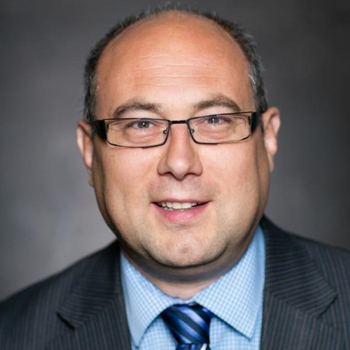
Phillipe SauvignetIndustrialisation Manager Professor Sarah Hendry | Innovation ArchitectSarah is an academic lawyer specialising in water and environmental law. She is the Head of Law at the University of Dundee. She also works within the UNESCO Centre for Water Law, Policy and Science which is hosted at the University of Dundee. Sarah is Scottish Editor for the Journal of Water Law and the Journal of Environmental Law and Management, co-convenor of the UK Environmental Law Association’s Scottish water law sub-group, and vice-chair of the International Water Association’s Specialist Group on Governance and Regulation. Her interest in Scottish, EU and comparative water law extends across both water resources and water services, and she has published widely, including on comparative frameworks for water law reform, on the ‘Scottish model’ of governance and regulation of water services, and on the regulation of emerging pollutants.
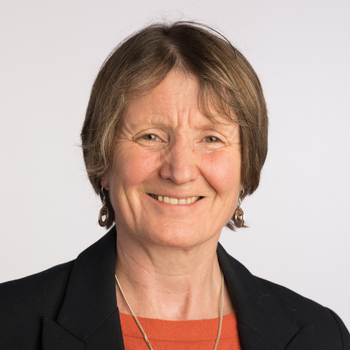
Professor Sarah HendryHead of Law Fraser Morgan| Organic Pollutant ConsultantFraser is an organic pollutant consultant with a MSc in Biomedical Science. His focus is on helping major industries to meet their environmental discharge regulations in order to build a more sustainable future for everyone. 
Fraser MorganOrganic Pollutant Consultant Ceris Van De Vyer | Director of Scientific Services Ceris is a water industry professional with 30 years proven scientific expertise in clean water, wastewater and an in-depth knowledge of public health and water quality. She has held senior management positions
in several UK water companies and was a Drinking Water Inspector in DWI with responsibility for regulating and governing water companies in England and Wales. Ceris is a Director of Scientific Services at
Water Research Company (WRc) supporting the industry to research and understand new emerging contaminants and associated issues amongst a wider remit. 
Ceris Van De VyerManaging Director of Scientific Services Nabil Hajjii | Technical Director of ToxicologyNabil is currently the Technical Director of Toxicology at WRc’s National Centre for Environmental Toxicology (NCET), providing an independent advisory service on the health significance of chemicals in drinking water, wastewater, and the environment for UKWIR members and sponsors. Nabil has over 20 years of experience of research into the molecular mechanisms of toxicants including the behaviour of persistent pollutants, pesticides, and heavy metals as well as pharmaceutical chemicals. He has held several competitive research fellow positions in leading research institutions in Spain, Sweden, USA, and UK. Nabil has had significant involvement at Imperial College London as a group leader, a senior research fellow in the faculty of medicine, Cancer Division, and most recently, as the Deputy director of Toxicology Unit at Imperial College London where he acted as an advisor to the UK Department of Health on the challenging and increasing number of toxic compounds. Through his work he has published over 60 research publications and established a strong international collaboration with leading research institutions and biotechnology companies. 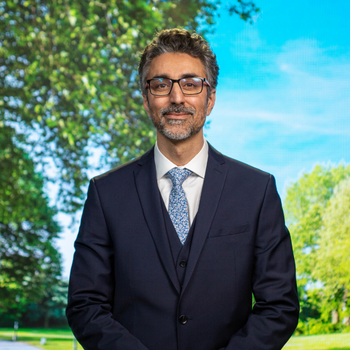
Nabil HajjiiTechnical Director of Toxicology Andrew Mcleod | Associate Director in BioresourcesAndrew is an Associate Director in Bioresources at Jacobs. He has a background in research of resource recovery from wastewater, and recycling sludge to land in the UK water sector. Since joining Jacobs, Andrew has applied his experience and provided key analysis on a number of projects for water companies and regulators. This has included assessment of the carbon benefits of recycling sludge (and biochar) to land for water companies in the UK and Australia. Andrew is currently assessing technologies and markets for biochar produced from sewage sludge. This activity is one possible option to manage increasing pressure on the treatment of micropollutants in sludge and impacts on sludge to land. 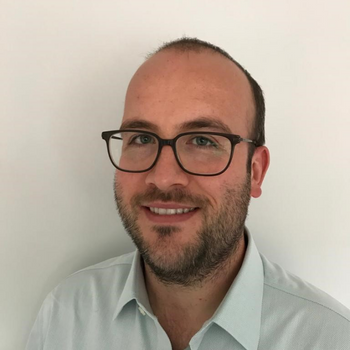
Andrew McLeodAssociate Director in Bioresources Dr Glenn Castle | Environmental ScientistGlenn is a consultant Environmental Scientist at Atkins specialising in water quality and monitoring. He holds a PhD on passive sampling for metaldehyde in surface waters and response to stochastic storm events. He has extensive experience in the assessment and generation of environmental data and has worked on designing and implementing monitoring programs for a range of water industry clients. Focusing on environmental impacts of emerging and problematic chemicals in both drinking and surface water. He is currently involved in the Chemicals Investigation programme (CIP) 3 for UK Water industry Research working alongside the Environment Agency and the Department for Environment, Food and Rural Affairs. His role within CIP3 has been the collation, quality assurance, analysis and reporting of several of the chem drivers involved with the programme, this includes but is not limited to: Groundwater, Emerging substances, Transitional and coastal, Trends, and Removals by installed technologies. 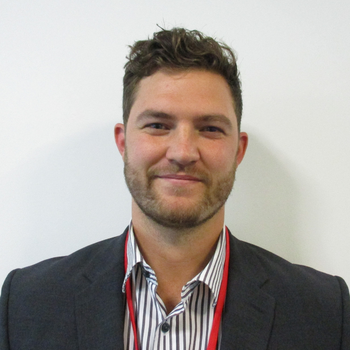
Dr Glenn CastleEnvironmental Scientist Cynthia Carliell-Marquet | Wastewater Innovation ArchitectCynthia Carliell-Marquet is a Wastewater Innovation Architect for Severn Trent. Her role within the Asset Intelligence and Innovation Team at Severn Trent is to create innovative solutions to wastewater strategic challenges, from customer drain to river. She is passionate about finding alternative, sustainable solutions to wastewater system challenges such as micropollutants, that push the boundaries of wastewater treatment to deliver a better final product without excessive chemical and power consumption. 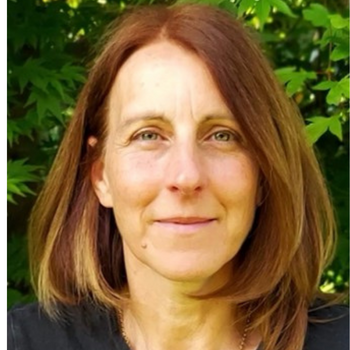
Cynthia Carliell-MarquetWastewater Innovation Architect Luisa Orsini | CEO and ProfessorI am the co-founder and CEO of Daphne Water Solutions Limited (https://www.dwsol.co.uk/), delivering sustainable technologies for tertiary wastewater treatment. I am Professor of Evolutionary Systems Biology and Environmental Omics at the University of Birmingham where I am affiliated both with Biosciences and the Institute of Interdisciplinary Data Science and AI. I am also an Alan Turing Fellow at the UK Alan Turing Institute, the national institute for data science and artificial intelligence. My mission is to improve environmental health by pushing the boundaries of research and innovation. I apply high throughput sequencing technologies, data science and AI to understand the impact of environmental change on freshwater ecosystems. I work with ghost DNA and resurrected crustaceans to identify the causes of biodiversity loss and the mechanisms of evolution that allow species to persist. I love multidisciplinary science and thinking out of the box. This thinking has led me to patent and commercialize a water reclamation and waste valorization technology that meets the net-zero carbon emission goals and delivers clean water to all. By translating cutting-edge multidisciplinary science into practical applications, I provide tools and processes for mitigation interventions that enable green growth and meet the UN developmental goals. 
Luisa OrsiniCEO and Professor Dr Emma Goslan | LecturerDr Emma Goslan, CChem is a Lecturer in Water Chemistry at Cranfield University. Her research focuses on Water Chemistry and the Analysis of Micropollutants. She has a great interest in emerging pollutants and discovering how to tackle these from the analytical aspect to treatment options and influence on drinking water quality and health. Currently Emma is supervising two PhD students studying disinfection by-products to understand their formation and how operational parameters can promote minimisation at the treatment works. Their projects are funded by UKWIR and EPSRC. 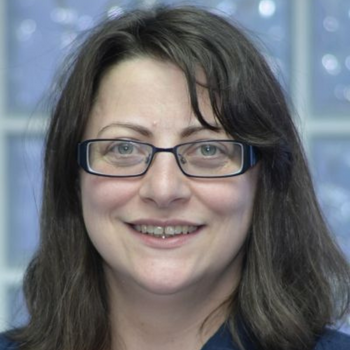
Dr Emma GoslanLecturer Esme Piechoczek | Bioresources ConsultantEsme Piechoczek is a Bioresources Consultant for Atkins. She has supported a number of clients in the UK Water sector and internationally with critical research and development of their Bioresources strategies, including research for UKWIR around the feasibility of Advanced Thermal Conversion technology implementation in the UK and development of the national Bioresources strategy for England in partnership with CIWEM, funded by Water UK. Having studied Sustainable Development at the Science Policy Research Unit (Sussex), she is focused on driving the circular economy and achieving better social and environmental outcomes in the sector through strategic decision making, regulation and policy. 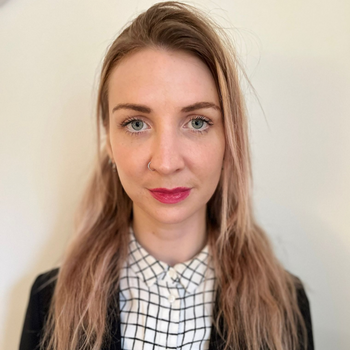
Esme PiechoczekBioresources Consultant Sarah-Jane Westlake | Associate Director of BioresourcesSarah-Jane is an Associate Director of Bioresources with over 17 years of experience working in the Water Industry having joined Atkins from the UK's largest water and wastewater services company, Thames Water. Sarah-Jane is an accomplished technical leader in environmental regulation and in her previous role she was the UK Water Industry Research Deputy Programme Lead for Bioresources and has represented the UK Water Industry on key regulatory forums. Since joining Atkins, Sarah-Jane has been involved on numerous projects in the UK and Middle East. This includes NEOM’s Biosolids Strategy, working as technical advisor for CIWEM on Water UK’s Bioresources Strategy and Route-map for England and as technical lead for the UKWIR project ‘Converting sewage sludge to biochar - a review of options & feasibility’ - a key piece of water industry research to assess the feasibility and potential of Advanced Thermal Conversion Technologies. 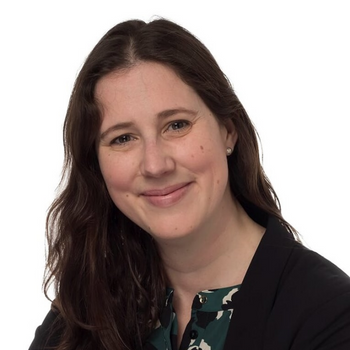
Sarah-Jane WestlakeAssociate Director of Bioresources Tom Williams |British Water International Forum ChairTom is a Chemical Engineer and Biotechnologist who has spent most of his +25yrs water industry career focused on water quality with Enebio Ltd and Orica Watercare, as well as establishing a global presence for various SME products. He has spent most of the last decade working on drinking water systems all across the United States where he has been an active part of the Partnership for Safe Water. Through a long association with British Water, Tom has led the Real Time Monitoring Group, Extractive Industries Group and has been an International Business Mentor for the USA for more than a decade. In the past Tom led British Water visits to China and reported back to All Party Parliamentary Groups. Tom is also the Vice Chair of the UK IWA Committee. When he is not working, you will find Tom restoring his ancient woodland in Whaley Bridge, or taking part in expeditions across the globe, which in the past have included West Africa, Borneo and Central America. 
Tom WilliamsCEO Emma Pemberton |Principal Environmental Chemist/EcotoxicologistEmma is an experienced environmental chemist and ecotoxicologist with over 23 years' experience in a research and regulatory setting. Before joining Ricardo, Emma was a technical expert on chemical risk in the Environment Agency, providing specialist knowledge and technical leadership on the environmental fate, behaviour and ecotoxicological impacts of chemicals across the business. She was an active member of the Water Framework Directive (WFD) UK Technical Advisory Group (TAG) Chemistry Task team. Emma has written evidence narratives on chemicals of national concern for water quality such as PFAS, mercury, PBDEs, cypermethrin, PAHs which have been used inform policy development in managing risks to the environment from chemicals. Emma has also led development of several WFD reporting requirements including the Priority Hazardous Substances Emission Inventory and development of a methodology for assessment of chemical status as part of the WFD water body classification for ubiquitous persistent and bioaccumulative (uPBT) priority hazardous substances. Emma was the evidence acquisition lead for the Environment Agency’s PFAS working group, developing a cross-business evidence plan for PFAS that identified and prioritised evidence gaps and research needs. She researched and wrote a narrative synthesis of UK environmental monitoring data which evaluated and presented the current evidence base for UK sources, pathways, and environmental levels Since joining Ricardo’s Environmental Chemistry and Toxicology team, Emma has been involved a variety of projects evaluating risks from emerging water quality contaminants including evaluation of risks to drinking water from persistent, mobile and toxic chemicals and organo-phosphate flame retardants, gap analysis of pesticide legislation, evaluation of data used for PBT/vPvB assessment under REACH. 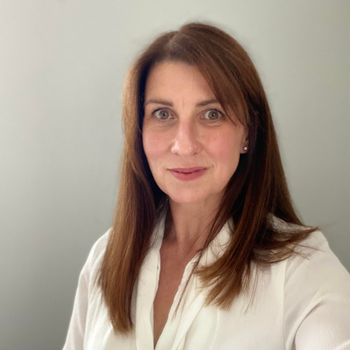
Emma PembertonPrincipal Environmental Chemist/Ecotoxicologist Dr Daniel Read | Molecular Ecology Research Group LeadDr Daniel Read leads the Molecular Ecology Research group at the UK Centre for Ecology & Hydrology (UKCEH), Wallingford. His research interests involve the application of molecular methods to understand the structure,
function and dynamics of biological communities, the development of environmental DNA (eDNA) techniques, and wastewater management and its role in the dissemination of antimicrobial resistance (AMR) to the environment 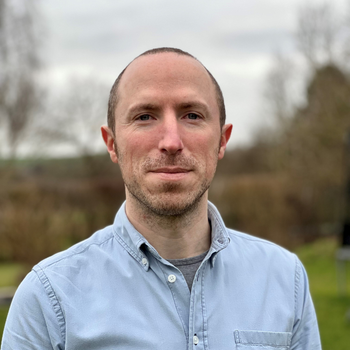
Dr Daniel ReadMolecular Ecology Research Group Lead Tom Cardy | Business Development ManagerTom joined Emissions Analytics in 2018 having previously worked for automotive retail brands. He is passionate about promoting the use of real-world emissions data to drive positive change in the automotive industry
and improve air quality for all. 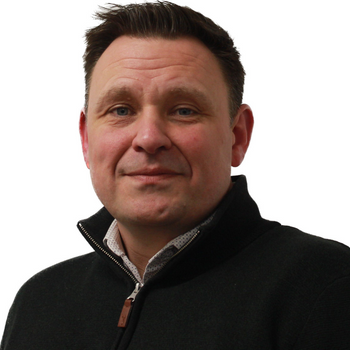
Tom CardyBusiness Development Manager Fabio Bacci | British Water Micropollutants Focus Group ChairI am an environmental scientist specialised in emerging pollutants. I work on business development for innovation, adhering to the pragmatic principle that progress must be governed by an equilibrium between environmental stewardship and the essential advancements necessary to ensure societal well-being. My ambition is to cultivate an ethic of contribution through alliances to make emerging water quality challenges a collective mission, a stimulus towards a collaborative revolution of the water industry. 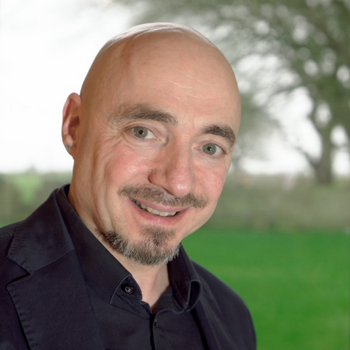
Fabio BacciBritish Water Micropollutants Focus Group Chair Mike Froom | Business Development DirectorMike started his career in the construction industry, working on major civil engineering projects. For over 25 years, Mike has worked in the water and environmental services sector, in senior commercial and operational positions. His primary focus has been the UK water industry, with roles in business development and strategic direction; while working alongside companies operating globally has provided national and international experience from other business sectors. In his new role as a Director of Te-Tech Process Solutions, a company dedicated to the supply of advanced treatment processes and conventional products for water and wastewater treatment, Mike looks forward to the challenges and opportunities that the water sector brings. Mike is a Non-Executive Director of British Water and past Chair of the UK Forum helping to represent the interests of British Water members and contribute on key water sector issues. 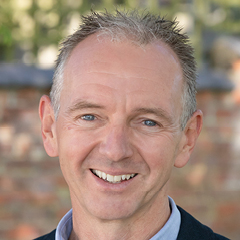
Mike FroomBusiness Development Director Ben Hazard | Lead Process EngineerBen is the lead process engineer for Te-Tech Process Solutions where he heads up the development of innovative water and wastewater treatment technologies. He also provides process engineering expertise and support to the wider business and has worked on a number of water and wastewater treatment schemes. 
Ben HazardLead Process Engineer Martin Rose | Government ScientistStudied Chemistry at the University of East Anglia, Norwich (BSc, MSc and PhD). Experience in the application of analytical chemistry to studies on dietary exposure, toxicology, environmental pathways, environmental monitoring, food authenticity, ecotoxicology, risk assessment and contingency responses for environmental contaminants in food gained working for over 30 years as a government scientist with Fera (previously CSL, Defra, MAFF). Former head of UK National Reference Laboratory for chemical contaminants in food. Former member of EFSA CONTAM and ANS Panels and currently member of 4 EFSA working groups. A member of the UK Government Scientific Advisory Committee Expert Group on Additives, Enzymes and other Regulated Products (part of Committee on Toxicity), the expert committee on pesticides (ECP) and a member of the FAPAS® advisory committee. In addition to working with Fera Science Ltd, Martin currently works with the Universities of Manchester and Leeds, as a monitoring officer for Innovate UK, and with the UN on supporting less developed countries with the development of food control systems including laboratory infrastructure. 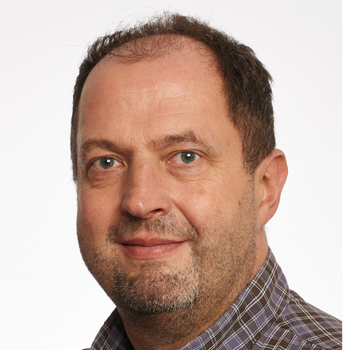
Martin RoseGovernment Scientist Hannah Martin | technical officer - UKHannah is responsible for connecting British Water members with contacts from across the supply community by coordinating all activities of the UK and Technical Forum. 
Hannah MartinTechnical Officer - UK |